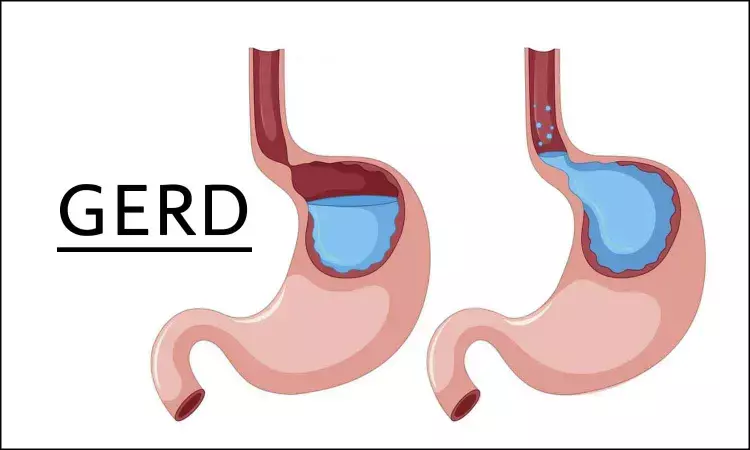- Home
- Medical news & Guidelines
- Anesthesiology
- Cardiology and CTVS
- Critical Care
- Dentistry
- Dermatology
- Diabetes and Endocrinology
- ENT
- Gastroenterology
- Medicine
- Nephrology
- Neurology
- Obstretics-Gynaecology
- Oncology
- Ophthalmology
- Orthopaedics
- Pediatrics-Neonatology
- Psychiatry
- Pulmonology
- Radiology
- Surgery
- Urology
- Laboratory Medicine
- Diet
- Nursing
- Paramedical
- Physiotherapy
- Health news
- Fact Check
- Bone Health Fact Check
- Brain Health Fact Check
- Cancer Related Fact Check
- Child Care Fact Check
- Dental and oral health fact check
- Diabetes and metabolic health fact check
- Diet and Nutrition Fact Check
- Eye and ENT Care Fact Check
- Fitness fact check
- Gut health fact check
- Heart health fact check
- Kidney health fact check
- Medical education fact check
- Men's health fact check
- Respiratory fact check
- Skin and hair care fact check
- Vaccine and Immunization fact check
- Women's health fact check
- AYUSH
- State News
- Andaman and Nicobar Islands
- Andhra Pradesh
- Arunachal Pradesh
- Assam
- Bihar
- Chandigarh
- Chattisgarh
- Dadra and Nagar Haveli
- Daman and Diu
- Delhi
- Goa
- Gujarat
- Haryana
- Himachal Pradesh
- Jammu & Kashmir
- Jharkhand
- Karnataka
- Kerala
- Ladakh
- Lakshadweep
- Madhya Pradesh
- Maharashtra
- Manipur
- Meghalaya
- Mizoram
- Nagaland
- Odisha
- Puducherry
- Punjab
- Rajasthan
- Sikkim
- Tamil Nadu
- Telangana
- Tripura
- Uttar Pradesh
- Uttrakhand
- West Bengal
- Medical Education
- Industry
Evaluation and management of GERD: ACG issues updated guidelines

USA: The American College of Gastroenterology (ACG) has issued updated guidelines on evaluating and managing gastroesophageal reflux disease (GERD).
The guideline, published in the Cleveland Clinic Journal of Medicine, offers a brief overview of changes in the outpatient management of GERD outlined in the latest guidelines. The guideline was released in response to advances in the diagnostic evaluation and management of GERD since the guideline was previously published in 2013. The updated guideline included the consequences of long-term proton pump inhibitor (PPI) therapy and emerging therapies.
Following are the main recommendations of the updated ACG guidelines
- Adult patients with classic GERD symptoms of heartburn and regurgitation without alarm symptoms such as dysphagia, bleeding, weight loss, anaemia, vomiting, and chest pain can be treated with an 8-week empiric trial of a PPI taken once daily before meals. An upper age limit is not specified.
- Endoscopy is indicated in patients with alarm or refractory symptoms after optimization of PPI therapy.
- PPIs continue to be the mainstay of medical treatment. For patients with GERD whose symptoms have resolved and who do not have erosive esophagitis or Barrett's oesophagus, tapering the PPI to the lowest effective dose, replacement with intermittent PPI therapy or a histamine 2 receptor antagonist, and, when possible, discontinuation should be considered.
- Reflux testing with a wireless telemetry capsule attached to the oesophagal mucosa during endoscopy or transnasal catheter is considered in patients with suspected GERD and normal endoscopy, extraesophageal GERD symptoms, or refractory GERD.
- Surgical options are recommended for patients with objective evidence of GERD who have severe reflux esophagitis (Los Angeles grade C or D), large hiatal hernias, or persistent, troublesome GERD symptoms such as regurgitation.7 The treatment is fundoplication, in which the lower oesophagal sphincter is strengthened by wrapping the fundus of the stomach around the oesophagus in the abdomen. Roux-en-Y gastric bypass is an option to treat GERD in patients with obesity who are candidates for this procedure.
- Long-term PPI therapy or antireflux surgery is recommended for patients with Los Angeles classification grade C esophagitis (erosions extending over mucosal folds, but over less than three-quarters of the circumference) or grade D esophagitis (confluent erosions extending over more than three-quarters of the circumference).
- Transoral incisionless fundoplication (TIF), the endoscopic creation of a gastric fundal wrap with plication, and magnetic sphincter augmentation (MSA), the laparoscopic insertion of a flexible ring of interlinked magnetic beads to augment the weak lower oesophagal sphincter, can be alternatives in patients with troublesome regurgitation or heartburn who do not wish to undergo fundoplication and who do not have severe reflux esophagitis or large hiatal hernia.
Reference:
Sasankan P, Thota PN. Evaluation and management of gastroesophageal reflux disease: A brief look at the updated guidelines. Cleve Clin J Med. 2022 Dec 1;89(12):700-703. doi: 10.3949/ccjm.89a.22059. PMID: 36455971.
Dr Kamal Kant Kohli-MBBS, DTCD- a chest specialist with more than 30 years of practice and a flair for writing clinical articles, Dr Kamal Kant Kohli joined Medical Dialogues as a Chief Editor of Medical News. Besides writing articles, as an editor, he proofreads and verifies all the medical content published on Medical Dialogues including those coming from journals, studies,medical conferences,guidelines etc. Email: drkohli@medicaldialogues.in. Contact no. 011-43720751


